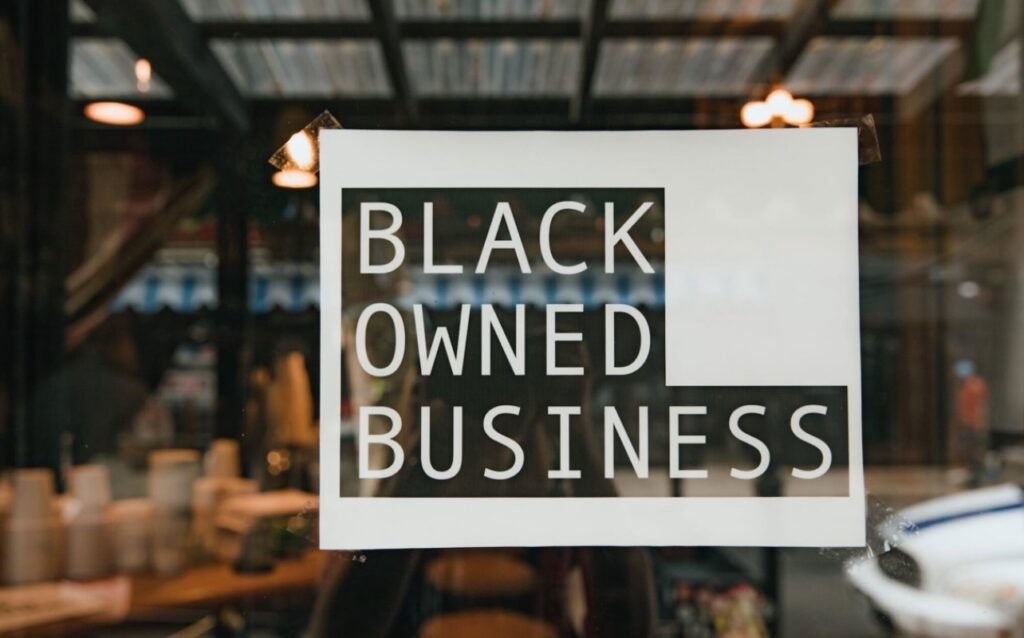Brookings Metro Unveils Dashboard To Help Cities Track And Close Gaps In Black Business Ownership
As Brookings advised in 2020, the key to unlocking the American economy lies in increasing investments in Black owned businesses

Brookings Metro’s Center for Community Uplift recently revealed its new Black Business Parity Dashboard, a tool that it will use to help policymakers, organizers, and other community members to make the potential impact of Black residents entrepreneurship a reality through providing data that shows what those businesses would look like if they were equitably funded in proportion to their population share.
According to Brookings, the tool examined Atlanta, which is seen as one of America’s Black Meccas, and found that if the population share of Atlanta was matched by Black businesses, its 14,000 Black-owned businesses would become 63,000 Black-owned businesses, a dramatic increase.
Similarly, in Detroit, where there are almost 2,800 Black-owned businesses, if that number was adjusted along the lines of Detroit’s Black population share, it would result in more than 23,000 Black-owned firms which would create approximately 460,000 jobs for Detroit’s metro area, which could contribute to the city’s economic recovery from decades of job and population losses.
The tool helps prove what a group of researchers asserted in their 2021 analysis of a deadly precondition for Black businesses for the National Community Reinvestment Coalition, the racial wealth divide, which also affects how Black businesses are invested in and discouraged from scaling up because they don’t have the capital necessary to expand their footprints.
According to the analysis from Dedrick Asante-Muhammad, Dr. Jared Ball, Jamie Buell, and Joshua Devine, “To produce more personal and community wealth from Black entrepreneurship, public and private sector spending should be intentionally channeled to Black-owned businesses.”
Although the findings of their research focus on the pandemic, their findings dovetail with the stated aims of the Black Business Parity Dashboard, which are to give city and community leaders the tools to visualize what a greater and more targeted investment in Black-owned businesses could produce in their metro areas.
Indeed, according to a 2024 analysis of the economic impact of Black-owned small businesses by The Reynolds Center for Business Journalism, per data from the 2021 Census; 161,031 Black-owned businesses produced $206 billion in revenue, which suggests that if these businesses were quadrupled, which some of the models in the dashboard say would be the case, that revenue number could become even more impressive.
As Brookings advised in 2020, the key to unlocking the American economy lies in increasing investments in Black-owned businesses, as they noted, “the underrepresentation of Black businesses is costing the U.S. economy millions of jobs and billions of dollars in unrealized revenues,” but their prescription for solving that problem then, as the Dashboard makes clear now, is to create parity for the nation’s Black-owned businesses.
According to Ashleigh Gardere, senior advisor to the president at PolicyLink, solutions for how to address the racial wealth gap can also be applied to Black-owned businesses. “DBE programs and small business training will never be enough to close the racial wealth gap in America—that’s just tinkering at the edges. We need racial equity standards in the private sector: from greater access to capital beyond traditional debt to new and reparative financial products, from private sector business opportunities to narrative change strategies that center and celebrate Black businesses.”
RELATED CONTENT: OPINION: Tariffs Are Squeezing Black-Owned Businesses—Here’s How We Fix It












